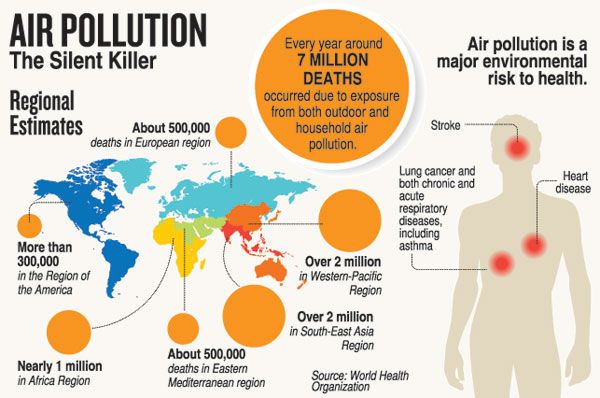News
Lanka’s air quality affected by winds from India; warning issued for people with respiratory illness
Sri Lanka’s air quality has been affected by unusually large amounts of pollutants brought in by wind movements from India, experts have said.
They urged the elderly people, those with respiratory and heart ailments, expecting mothers and children, especially from the Northern region, Western coastal areas and central hills to be extra careful as winds from the Indian region continued to bring in pollutants to land areas.
“This year, a huge inflow of polluted air entering the country via India was noticed, especially when the air in New Delhi reached a high pollution level towards the end of October,” said H.D.S. Premasiri, senior scientist of National Building Research Organization (NBRO)’s Air Quality Unit that monitors the Air Quality Index (AQI) in the country.

He said high levels of pollutants coming from the Indian region were a cause for concern here, given the reduction in air pollution caused by vehicular movements, one of the major contributions to the country’s air pollution, following COVID-19-related restrictions.
“During the past two weeks, Sri Lanka’s AQI (the Air Quality Index) reading dropped and fluctuated between 75 and 100 (particular matter 2.5) – an improvement — while Indian cities especially New Delhi’s AQI level went above 200 (very poor). At present the AQI in Colombo stands at a moderate value of 78, which means the air quality is not bad, but a small group of sensitive people may experience difficulty in breathing or see their respiratory illnesses intensify,” he said.
Mr. Premasiri warned the upcoming North East monsoon winds too could bring in pollutants if the air was coming from the Northern Indian region of Himalayas, Bangladesh or China.
The Disaster Management Centre said unusual increases of poor air quality in Colombo, Kandy, Puttalam, Vavuniya and Jaffna districts were visible from October 27.
Haze or smog, unclear skies and poor visibility of buildings are some of the signs of poor air quality, the DMC said, advising those in vulnerable areas to limit outdoor exposure, avoid outdoor exercise and sports activities, wear masks and seek medical care in case of difficulty in breathing.

